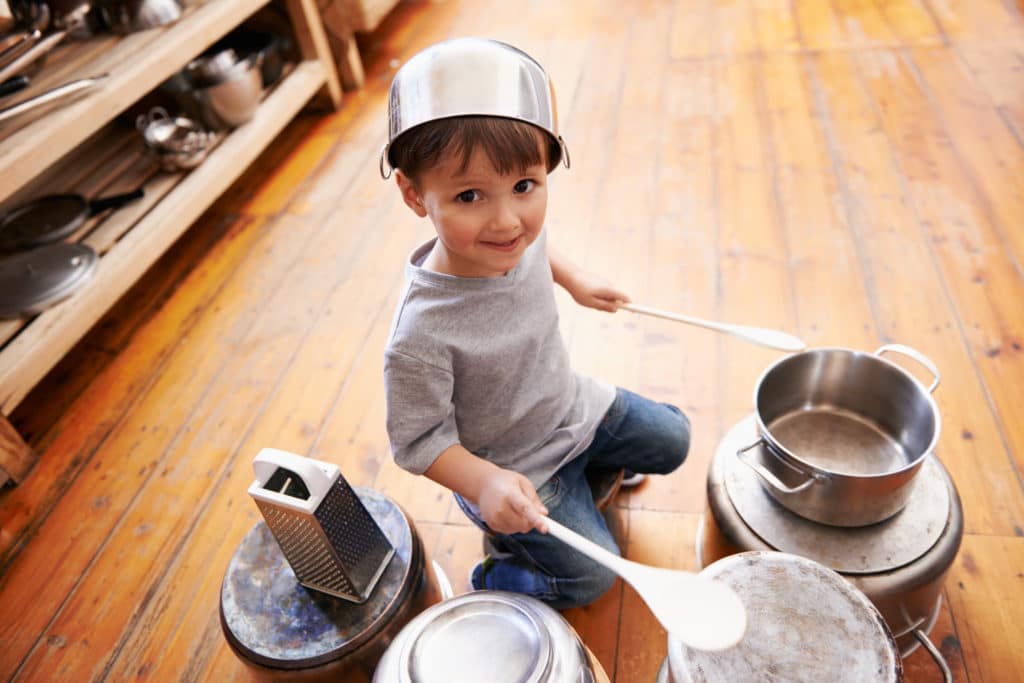Activities
Getting Creativity Flowing with your Elementary Schoolers


Giving your children opportunities to express their natural creativity enhances their brain development. When they have fun expressing themselves with activities like music, arts, and crafts, they learn to actively solve problems and look at situations in new ways. Creative expression is an important part of life! The arts provide opportunities to explore culture and develop thinking, communication, and social skills. Music promotes number and language skills. It also helps children develop rhythm, melody, and timing and is naturally calming. Drama and acting develop spoken language. Drawing and creative movement activities like dance help develop fine and gross motor skills. Encouraging and providing opportunities for creative expression helps develop confidence and healthy self-esteem. Through the arts, children learn more about their world!
It is important to focus on the process of creative expression, rather than the result. With practice, curiosity, and repetition, their skills will develop over time. The pure pleasure of putting crayons to paper, or manipulating a blob of clay in their hands is something to enjoy. Try to keep judgments out of your comments to your child. Instead, describe what you see and ask open-ended questions. For example, “There is a lot of red in your picture, can you tell me about your drawing?”
Creative expression can help children access and articulate their feelings. It may be easier to draw a picture of how they feel than to talk about it. You may hear them work out conflicts or challenges through their creative play. By expressing themselves through art, music, or drama, children can try out new ways of thinking and problem-solving, and sometimes come up with creative solutions.
How to Encourage Your Kids to be Creative
Notice activities your child shows interest in
Often, things that our kids are interested in come out during playtime. Pay attention to repeated activities that they do during play times to see what might spark their creativity. If your child is always strumming on their toy guitar and banging on pots and pans, see if they are interested in a local music class. If they love to move their bodies any time a song comes on the TV, a dance group might be fun! Joining a group or class can be a way of encouraging and expanding their interest and skills.
Let your child try different things
You might find that the first activity you try isn’t the one your child is passionate about, and that’s all part of the learning process! Continue to pay attention to what they’re showing you they like through their play, and with time you’ll find creative activities they enjoy. Practice is how kids (and adults!) grow their confidence, so if you find something they enjoy, try to stick with it for a little while to see your child grow and thrive with a new, fun skill being developed. When you encourage your child to stick with an activity, even when it seems hard at first, you are building resilience!
Encourage your child’s interests
Incorporate creative play into your regular routine with your child. This could look like painting and coloring, singing and dancing together, playing dress up, and making up silly stories. Find whatever works best for your family!
When you’re out and about, make a point to talk about things around you that you find beautiful. Is there a building you pass on the way to daycare that has a beautiful mural? A cherry blossom tree that blooms near your house and creates a pink floor on your walks? Point out details such as colors, lines, and textures. This helps your child see the world through a creative lens!
And encourage your child’s attempts!
If you’ve put your child in music lessons to learn to play the violin, show an interest in it by listening to them play! When they bring home artwork they made at school, talk about what they love about it and hang it up for the family to enjoy. Try to avoid any criticism, such as “Dogs aren’t supposed to be taller than houses!” Let your kids express themselves freely, and give plenty of praise for trying hard and learning new skills!
Creative hobbies are excellent for self-expression, self-confidence, and connection with others who share the same interests as your child. Creative activities can be a source of pleasure and pride for many children and parents, and an enriching part of life!
-

 Destination8 months ago
Destination8 months agoSingapore Airlines CEO set to join board of Air India, BA News, BA
-

 Breaking News10 months ago
Breaking News10 months agoCroatia to reintroduce compulsory military draft as regional tensions soar
-

 Gadgets3 months ago
Gadgets3 months agoSupernatural Season 16 Revival News, Cast, Plot and Release Date
-

 Tech News12 months ago
Tech News12 months agoBangladeshi police agents accused of selling citizens’ personal information on Telegram
-

 Productivity11 months ago
Productivity11 months agoHow Your Contact Center Can Become A Customer Engagement Center
-

 Gadgets3 weeks ago
Gadgets3 weeks agoFallout Season 2 Potential Release Date, Cast, Plot and News
-

 Breaking News10 months ago
Breaking News10 months agoBangladesh crisis: Refaat Ahmed sworn in as Bangladesh’s new chief justice
-

 Toys12 months ago
Toys12 months ago15 of the Best Trike & Tricycles Mums Recommend



















